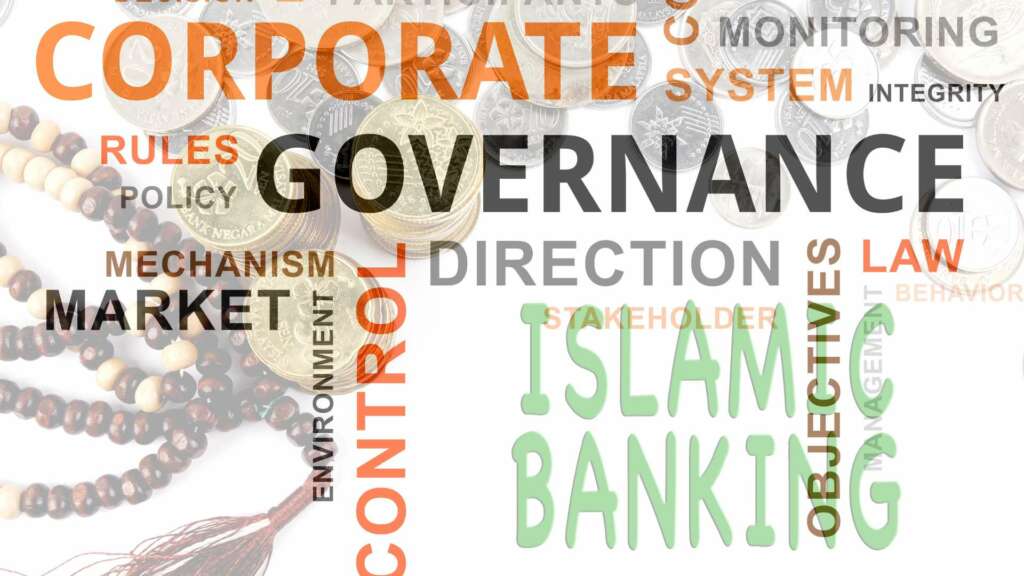By Talal Elmakkawi, Legal Consultant, Apex Juris Advocates & Legal Consultants
Corporate governance in Islamic financial institutions requires them to abide by a set of rules called the Islamic Rules or Sharia Principles. These rules govern the banks operations and transactions in accordance with Islamic principles derived from the Quran and Hadith (sayings of the Prophet Muhammad PBUH).
Sharia Principles (Sharia) strictly prohibit usury or, the collection and payment of interest (riba). Islamic banks work on the methodology of profit-and-loss sharing arrangements, or purchase and resale of goods and services on the basis of contracts. The rate of return on financial assets are not known or fixed prior to undertaking the transaction. Further, Sharia Principles generally prohibits trading in financial risk. Mainstream Islamic legal opinions, if not all, prohibit trading in debt in the secondary capital markets. Some could argue that global markets could have avoided a number of the financial difficulties being faced, had they discontinued trading in debt.
In Islamic banking, Sharia currently has a crucial role which is not limited to governing bank transactions and operations. Its role extends to monitoring and supervising the roles of all individuals within the banking system.
The Sharia is described as a blueprint, so to speak, for Islamic banks to operate in accordance with the laws outlined. A clear circumstance is eliminating interest in all its forms, and further to ensure that none of the banking procedures neither exploit nor cause any injustice to the bank’s shareholders, stakeholders or any of its customers.
Islamic Banks appoint Islamic scholars on its religious boards known as “Sharia Boards” in order to ensure that the respective banks’ policies and activities are in compliance with the Sharia principles. Amongst the duties of the “Sharia Board” is also to supervise and consult with relevant departments of the bank whilst keeping up to date with market demands. The decisions of the “Sharia Board” may overrule a Board of Directors decision on Islamic transactions, exercising its advisory and compliance capacity. This usually happens in two stages:
- The banks Sharia board reviews the operations of the financial institution to ensure its Sharia compliance.
- Reviewing whether proposals for new transactions or products are in conformity with the Sharia rules and principles.
In this regard, Islamic banks do give consideration to the announcements and advice of the Accounting and Auditing Organization for Islamic Financial Institutions (AAOIFI) and the Islamic Financial Service Board (IFSB). As in conventional banks, Islamic banks do take account of risks, hence, it is imperative to have sound corporate governance and risk management.
The major difference between conventional banks and Islamic banks is that Islamic banks share profits and losses with its depositors. Unlike a conventional bank, the Islamic banks relationship with its depositors is that of a borrower and lender of funds. Islamic banks are effectively partnering with its depositors or borrowers, and are also partners with entrepreneurs, when employing depositors’ funds in productive direct investments. Consequently, this results in a different stakeholder relationship between Islamic banks and their depositors in comparison to conventional banks, due to the fact that depositors/borrowers have a direct financial stake in the bank’s investment and equity participations. However, it has much to offer in alternate solutions to the global financial community.
Ethical and moral conscience is enshrined in Islamic banking and finance models. However, in this age; digitalisation and artificial intelligence solutions seem to be encroaching into Islamic banking and finance models as with most industries. Any effort to move towards the sector of Information Technology or Artificial Intelligence should resolve issues of ethical and moral conscience or religious teachings, which may have an element of disagreement. It will be a total reformation with regards to the conduct of business internationally, regardless of jurisdiction or type of Islamic financial institution. As challenging as it may be, it could be argued that this is not simply wishful thinking, but a goal that can be achieved by offering examples of successful business models exemplified by the Islamic financial institutions’ prudence in the international market.
Contemporary Islamic banking and finance continues to learn from the dominant conventional financial mechanisms and systems. Islamic financing continues to develop with many efforts by trying to offer new concepts. This raises significant questions of law, morality and policy which eventually pose challenging issues to Islamic jurists, as well as practitioners and legislatures.
Islamic banks in the United Arab Emirates are either public or stock listed companies. Therefore, apart from all what is intrinsic in the Sharia Principles, these institutions with regards to corporate governance are obliged to be in conformity with the Commercial Companies Law as well as all directives of regulatory bodies.
The Chairman of the Securities and Commodities Authority (SCA) of the United Arab Emirates issued a resolution – Corporate Governance for Joint Stock Companies – in February 2020 (Resolution No. 3/RM of 2020). The resolution sets new rules for the regulation of corporate governance of public joint stock companies, including banks. Further, the resolution complements the Commercial Companies Law which states that board members are liable to the company, its shareholder and third parties for various actions such as; mismanagement, abuse of power, fraud, violation of the company’s Articles of Association and any violations of law including violations of any regulations implementing or complementing the provisions of the Commercial Companies Law such as the Corporate Governance for Joint Stock Companies resolution. Amongst the rules established by the resolution is the, collective duties of the Board of Directors, Individual duties of the Board of Directors, Duties of the Chairperson of the Board and regulations of trading by Board Members.
Corporate governance principles and codes in Islamic banks have been developed in different countries and issued from Central banks, stock exchanges, corporations, institutional investors, or associations (institutes) of directors and managers with the support of governments and international organisations. There is, of course, no single recognised best model of corporate governance.
